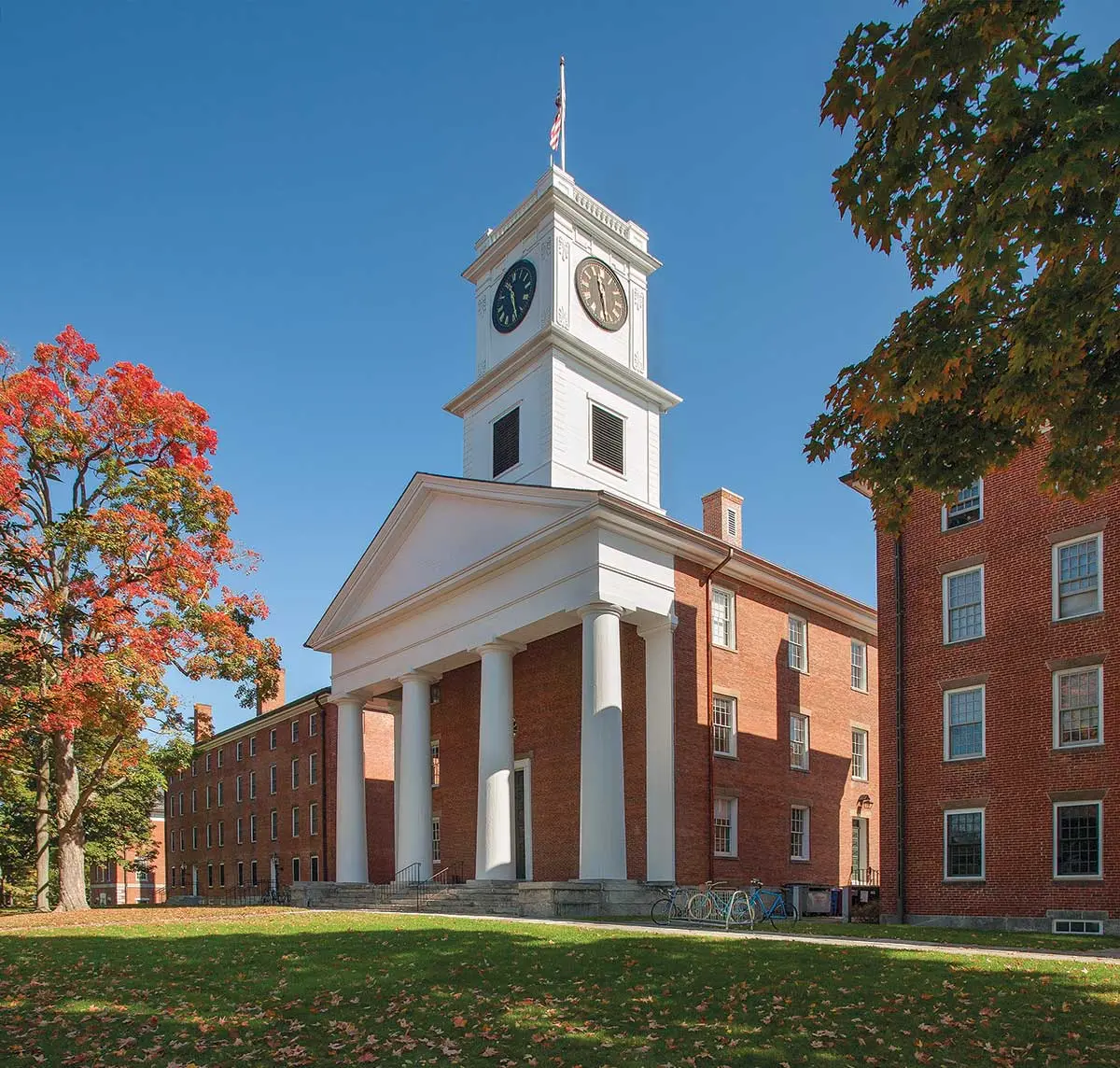Satire: College To Create New Prize Honoring Conservative Journalism
The Student has been awarded Amherst’s newly created honor, the Hadley Arkes Prize, for its representation of conservative voices. Members of the prize’s selection committee emphasized the need for diversified political discourse.

The Student has been awarded the newly established Hadley Arkes Prize, an honor bestowed by the college for student publications that have “diversified political discourse on campus through conservative journalism.” Framed as a counterpiece to the Samuel Bowles Prize, which aims “to stimulate interest in journalism as a career,” the prize was established in light of recent concerns over the student body’s intolerance of political diversity, especially its repression of conservative voices.
The prize is named after Edward N. Ney Professor Emeritus of American Institutions Hadley Arkes, who was noted for his outspoken conservatism during his time at Amherst. While the prize has no monetary component, editors and a select few writers will be given a lifetime subscription to major conservative publications, such as National Review and The American Spectator.
According to Zachary Jones, who was a part of the prize’s selection committee, The Student has served as a political bastion for conservative students. When asked about specific articles, Jones mentioned bold pieces such as Alex Hanson ’25’s “Do Activated Charcoal Face Masks Count as Blackface?” as well as Timothy Howard '25’s “Why The Smurfs Wouldn’t Vote Blue.” The committee feared that the college’s political environment suppressed conservative voices, something which may hurt those students’ feelings, and felt the need to address the issue themselves.
“We saw what you guys were doing, representing all these silenced writers, and we wanted to acknowledge that,” said Jones. “We’re not a liberal institution. Saying that we’re liberal means we’re picking a side. But we’re not supposed to pick sides.”
When asked how the college was combating political partisanship beyond the prize, Jones gave a variety of answers. “Everything is better in moderation. When we make our sandwiches in the office, for instance, we make sure one slice is non-white bread (wheat, raisin, etc.) and that the other is white bread. We also like to alternate our office music between Brian Kelley and Tupac. In addition, whenever someone talks about anti-racism measures, we always make sure to say something racist afterwards, just so that things are balanced.”
Unfortunately, Jones would not provide examples. But he added that the college had plans to create the Office of Freedom (OOF) next year, one that would act as a counterbalance to the Office of Diversity, Equity, and Inclusion. The college hopes that OOF and the Hadley Arkes Prize will ensure that conservative students feel heard.
“The Hadley Arkes Prize is just a tiny part of a broader transition. We have to remember that we’re a liberal arts college — not a liberal college — and that means all opinions matter,” Jones said.
Another member of the selection committee, Candace Taylor, stressed the need for “equalizing the playing field for all students,” arguing that the abundance of liberal voices on campus amounted to discrimination against conservative students, who represent a political minority at Amherst. Taylor applauded The Student for its diligent efforts to undo these injustices.
“That article from the former Trump supporter? Brilliant. And that editorial about campus dialogue? We all know that was a nod to Amherst’s silent majority. We hear you guys.”
By recognizing outstanding conservative journalism in publications such as The Student, the college hopes that the Hadley Arkes Prize will encourage conservative students to be more vocal in the future.
“I think everyone [at Amherst] is just pretending to be liberal. But deep down, we’re all conservative. We’re just afraid to admit it and need a little bit of encouragement,” Taylor said.
While many prizes are funded and established by those they are named after, the college has explicitly stated that Arkes had little to no involvement with the prize’s creation. Instead, his remaining colleagues at the college wanted to commemorate his incredible legacy in an effort to remind the student body of a beloved professor it seems to have forgotten. When asked to head the prize committee, Arkes had reportedly declined, saying that while he commended his colleagues’ enthusiasm, he no longer had “anything to do with that spiteful school.” (He now leads the James Wilson Institute, which is based in Alexandria, VA.)
Arkes’ legacy with the student body includes a variety of opinion articles discussing his controversial 2013 contribution to “The Catholic Thing,” a blog that offers Catholic commentary on contemporary issues. In his stunningly clairvoyant article, Arkes argued that the Supreme Court’s potential endorsement of gay marriage signaled “a culture that has lost its moral coordinates.” He also compared transgender and bisexual sexual orientation to zoophilia, finding “the notion of ‘sexual orientation’ to be quite unstable.”
In 2016, the then-editorial board of The Student called on the college to hold Arkes accountable for allegedly celebrating President Donald Trump’s first presidential victory by bringing alcohol into his class. (It is important to note that the 2016 editorial board in no way, shape or form represents the Editorial Board today. In awarding The Student with the Hadley Arkes Prize, the college recognizes that the Editorial Board has turned over a new leaf.)
On the note of Arkes’ departure from the college, one of his former students, Todd Pike ’73, optimistically noted that the new prize will memorialize Arkes as an emblematic figure in both the college’s and America’s history.
“Professor Arkes was a genius,” Pike, who is now an attorney at Alliance Defending Freedom, said. “But geniuses are often silenced for daring to think differently. He was silenced by the Amherst mob. We need more brave men like him today.”


Comments ()